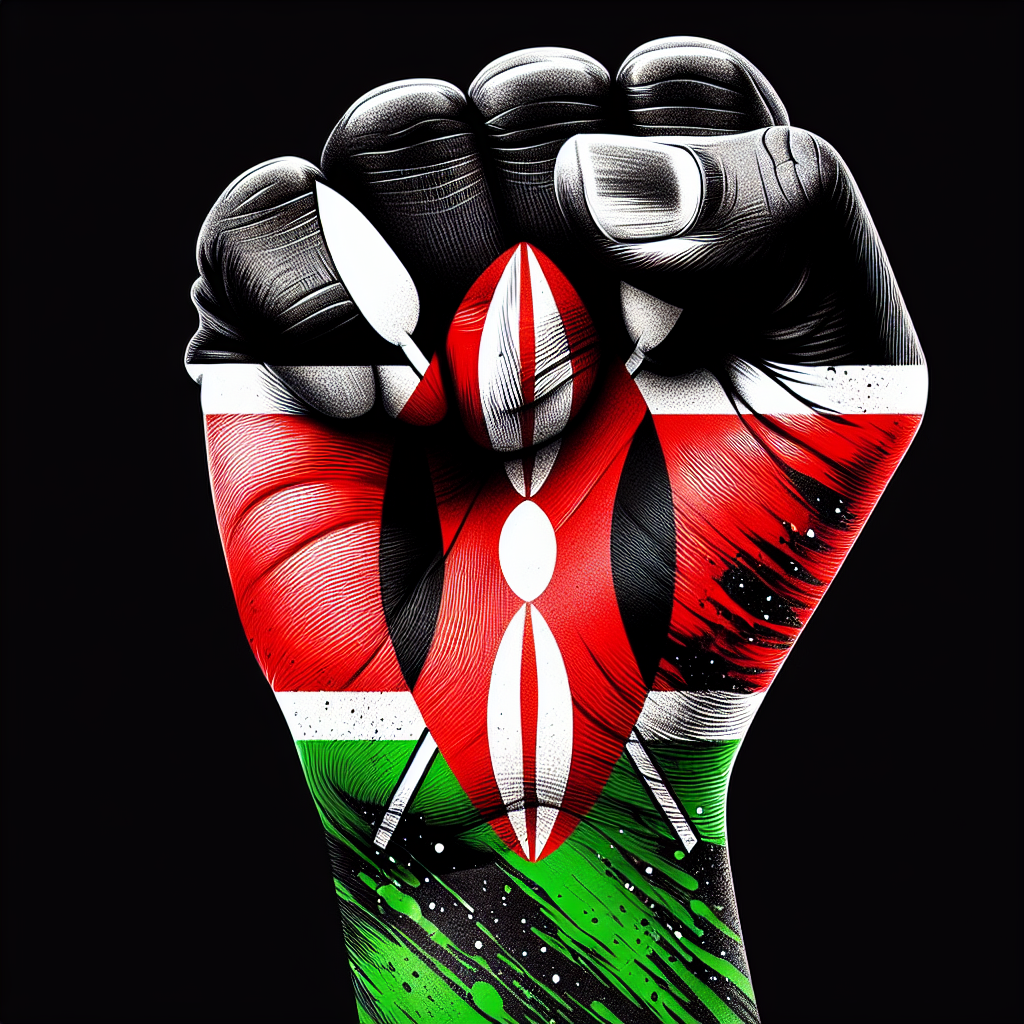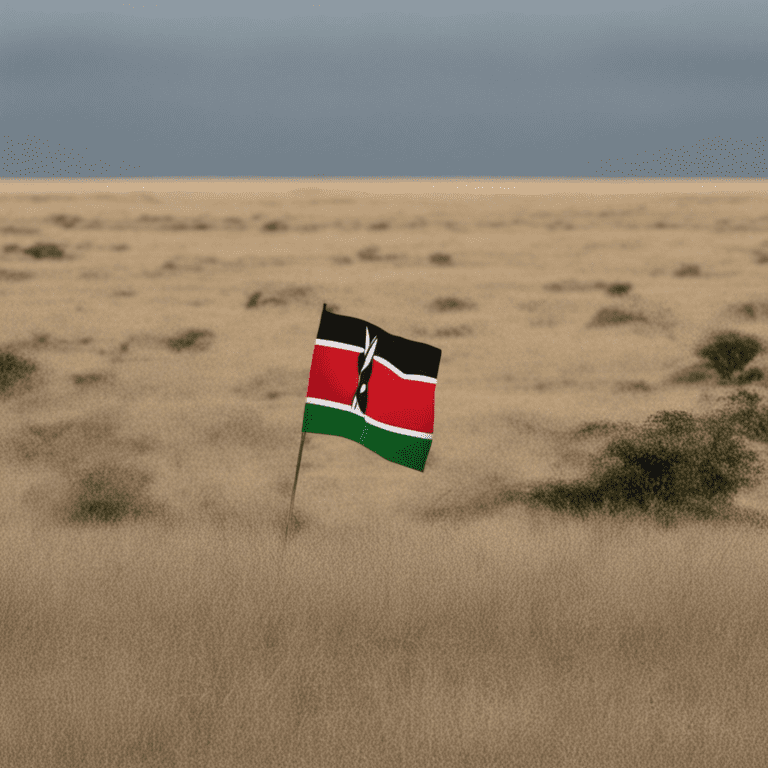How Do Kenyans Address Issues Of Corruption?
Kenyans have long been recognized for their resilient spirit and widespread determination to combat corruption. With a history marred by corruption scandals and a strong desire for change, the people of Kenya have adopted various strategies to address this pervasive issue head-on. From grassroots activism and public protests to the implementation of anti-corruption laws and the establishment of specialized courts, Kenyans have shown immense courage and resourcefulness in their fight against corruption. This article explores the innovative approaches and the collective responsibility that Kenyans have embraced to confront corruption and build a more transparent and accountable society.
Strategies for Addressing Corruption
Legal and Institutional Framework
In order to effectively address corruption, a strong legal and institutional framework is essential. This includes enacting and enforcing laws that criminalize corruption and establish penalties for offenders. It is important that these laws are comprehensive and cover all aspects of corruption, from bribery to embezzlement. Additionally, institutions such as anti-corruption agencies should be established and empowered to investigate and prosecute cases of corruption. By having a robust legal and institutional framework, Kenyans can have confidence that corrupt individuals will be held accountable for their actions.
Strengthening Anti-Corruption Agencies
Anti-corruption agencies play a crucial role in the fight against corruption. In Kenya, organizations such as the Ethics and Anti-Corruption Commission (EACC) are responsible for investigating and prosecuting cases of corruption. To strengthen these agencies, it is important to provide them with adequate resources, both human and financial. This includes recruiting and training competent staff who are dedicated to combating corruption. Additionally, anti-corruption agencies should be given the necessary independence and autonomy to carry out their work without interference. By strengthening these agencies, Kenyans can have confidence that corrupt individuals will be held accountable.
Promoting Transparency and Accountability
Transparency and accountability are essential in combating corruption. This includes ensuring that government processes and decisions are made in a transparent and accountable manner. One way to promote transparency is by implementing measures such as public procurement reforms, where government contracts and tenders are made available for public scrutiny. Additionally, it is important to encourage a culture of accountability, where those in positions of power are held responsible for their actions. This can be achieved through mechanisms such as asset declaration requirements for public officials. By promoting transparency and accountability, Kenyans can reduce opportunities for corruption and hold those who engage in corrupt practices accountable.
Enhancing Judicial Reforms
A strong and independent judiciary is crucial in the fight against corruption. Judicial reforms are necessary to ensure that corruption cases are handled efficiently and impartially. This includes measures such as reducing judicial delays and improving the management of cases. Specialized anti-corruption courts can also be established to prioritize corruption cases and ensure that they are dealt with swiftly. Furthermore, it is important to enhance the capacity of judges and prosecutors to handle complex corruption cases. By enhancing judicial reforms, Kenyans can have confidence in the legal system and its ability to deliver justice in corruption cases.
Civil Society and Media Role
Promoting Awareness and Education
Civil society organizations and the media play a vital role in addressing corruption by raising awareness and educating the public. Through public campaigns, workshops, and community engagement, civil society organizations can educate citizens about the negative impact of corruption and encourage them to take a stand against it. Similarly, the media can play a crucial role in exposing corrupt practices and holding those involved accountable. By promoting awareness and education, Kenyans can empower themselves to actively participate in the fight against corruption.
Investigative Journalism and Exposing Corruption
Investigative journalism is a powerful tool in exposing corruption. By conducting thorough research and collecting evidence, journalists can uncover corrupt practices and bring them to the public’s attention. This can help to create public pressure for action to be taken against those involved in corruption. However, it is important that journalists are protected from harassment and intimidation, as exposing corruption can often be dangerous. By supporting investigative journalism and ensuring the safety of journalists, Kenyans can encourage the uncovering of corruption and promote accountability.
Advocacy and Mobilization
Civil society organizations and the media can also engage in advocacy and mobilization efforts to push for anti-corruption reforms. This can involve lobbying government officials and advocating for policy changes that promote transparency and accountability. Additionally, civil society organizations can mobilize citizens to take collective action against corruption, such as organizing protests and demonstrations. By engaging in advocacy and mobilization, Kenyans can exert pressure on the government to take concrete actions to combat corruption.
Public Sector Reforms
Merit-Based Recruitment and Management
The public sector plays a crucial role in implementing government policies and delivering services to citizens. To address corruption, it is important to ensure that recruitment and management processes within the public sector are based on merit and integrity. This means that individuals should be hired, promoted, and rewarded based on their qualifications and performance, rather than through corrupt practices such as bribery or nepotism. By promoting merit-based recruitment and management, Kenyans can reduce opportunities for corruption within the public sector.
Ethics and Integrity Training
Ethics and integrity training can help to instill a culture of accountability within the public sector. Public officials should be required to undergo regular training to understand the importance of ethics and integrity in their work. This training can help to raise awareness about the negative impact of corruption and provide officials with the necessary tools to resist corrupt practices. By promoting ethics and integrity training, Kenyans can ensure that public officials are equipped with the knowledge and skills to act with integrity.
Whistleblower Protection
Whistleblowers play a crucial role in exposing corruption by reporting wrongdoing within organizations. However, they often face retaliation and intimidation for coming forward. To address this issue, it is important to establish strong whistleblower protection mechanisms. This includes providing legal safeguards for whistleblowers and ensuring that their identities are kept confidential. By protecting whistleblowers, Kenyans can encourage more individuals to come forward and report corruption, thereby strengthening the fight against corrupt practices.
Technology and Innovation
E-Government Initiatives
E-government initiatives can help to reduce corruption by promoting transparency and efficiency in government processes. This involves using electronic platforms to deliver government services and facilitate interactions between citizens and the government. By digitalizing government processes, the potential for corruption can be reduced as there is less direct contact between officials and citizens. Additionally, e-government initiatives can improve transparency by making information easily accessible to the public. By embracing e-government initiatives, Kenyans can promote transparency and reduce opportunities for corruption.
Digital Payment Systems
Digital payment systems can also contribute to the fight against corruption. By moving away from cash transactions and embracing digital payments, the potential for bribery and embezzlement can be reduced. Digital payment systems leave a clear audit trail, making it more difficult for corrupt individuals to hide their illicit activities. Additionally, digital payments can improve efficiency and reduce the opportunities for corruption in government revenue collection. By embracing digital payment systems, Kenyans can create a more transparent and accountable financial ecosystem.
Blockchain Technology
Blockchain technology has the potential to revolutionize the fight against corruption. By creating a decentralized and transparent ledger of transactions, blockchain can help to prevent corruption by eliminating the need for intermediaries and reducing the potential for fraud. Additionally, blockchain can enable secure and transparent procurement processes, ensuring that government contracts are awarded fairly and without corruption. By embracing blockchain technology, Kenyans can harness its potential to promote transparency and integrity in various sectors.
International Cooperation
Mutual Legal Assistance
Corruption is a global issue that requires international cooperation to effectively address. Mutual legal assistance is crucial in facilitating the sharing of information and evidence between countries to investigate and prosecute cross-border corruption cases. Through international agreements and cooperation, Kenyans can strengthen their efforts to combat corruption and ensure that corrupt individuals cannot escape justice by seeking refuge in other countries.
Asset Recovery
To deter corruption and restore public trust, it is important to recover assets that have been illegally acquired through corrupt practices. Asset recovery involves locating, freezing, and repatriating the proceeds of corruption. This can be a complex process, requiring cooperation between countries and the establishment of legal frameworks for asset recovery. By actively pursuing asset recovery, Kenyans can send a strong message that corruption will not be tolerated and ill-gotten gains will be returned to the state.
Anti-Corruption Conventions
International conventions and agreements, such as the United Nations Convention against Corruption (UNCAC), provide a framework for countries to work together to prevent and combat corruption. By ratifying and implementing these conventions, Kenyans can demonstrate their commitment to addressing corruption and collaborate with other countries in the fight against corruption. International cooperation and the sharing of best practices are essential in developing effective strategies and policies to combat corruption.
Political Leadership and Good Governance
Political Will and Commitment
Addressing corruption requires strong political will and commitment from government leaders. Political leaders should demonstrate a zero-tolerance approach to corruption and lead by example. This includes ensuring that government officials are held accountable for their actions and that anti-corruption measures are effectively implemented. By showing a genuine commitment to combatting corruption, political leaders can inspire trust and confidence in the government’s efforts to address this issue.
Enforcing Code of Conduct for Public Officials
A code of conduct for public officials can promote ethical behavior and integrity in government. It sets out clear expectations for public officials, outlining the standards of conduct that they should adhere to. By enforcing a code of conduct and holding officials accountable for any violations, Kenyans can promote a culture of integrity within the public sector. This can help to reduce opportunities for corruption and ensure that public officials act in the best interests of the citizens they serve.
Promoting Transparent Elections
Transparent elections are essential in promoting good governance and combating corruption. By ensuring that elections are conducted in a transparent and fair manner, Kenyans can choose leaders who have the public’s best interests at heart. This includes implementing measures such as voter education to enhance citizen participation, as well as establishing an independent electoral commission to oversee the electoral process. By promoting transparent elections, Kenyans can strengthen democracy and reduce the potential for corruption in the political sphere.
Community Participation
Community-Led Development Projects
Community-led development projects can empower citizens and reduce opportunities for corruption. By involving communities in decision-making processes and actively engaging them in the planning and implementation of development projects, corruption can be minimized. Community participation helps to ensure that resources are used efficiently and that the needs of the community are addressed. By promoting community-led development projects, Kenyans can foster a sense of ownership and accountability, while reducing the potential for corruption.
Citizen Oversight Committees
Citizen oversight committees play a crucial role in monitoring government activities and holding public officials accountable. These committees consist of members of the community who volunteer their time to ensure transparency and integrity in government processes. By actively monitoring and reporting any instances of corruption, citizen oversight committees can help to expose corrupt practices and promote accountability. By supporting and encouraging the formation of citizen oversight committees, Kenyans can actively participate in addressing corruption at the local level.
Whistleblowing Hotlines
Whistleblowing hotlines provide a safe and anonymous platform for citizens to report corruption. By establishing dedicated hotlines, individuals can report instances of corruption without fear of retaliation. These hotlines should be operated by independent entities to ensure confidentiality and professionalism. By encouraging citizens to use these hotlines and providing appropriate support and protection for whistleblowers, Kenyans can create an environment that encourages reporting of corruption and helps to identify and address corrupt practices.
Ethics and Integrity Initiatives
Code of Conduct for Public Officials
A code of conduct for public officials sets out the ethical standards and expectations for behavior in the performance of their duties. By establishing and enforcing a code of conduct, public officials can be held accountable for their actions and are expected to act in the best interests of the public. This helps to promote transparency, integrity, and professionalism within the public sector. By embracing a code of conduct for public officials, Kenyans can ensure that those entrusted with public resources act with integrity.
Declaration of Income and Assets
Requiring public officials to declare their income and assets can help to prevent and detect corrupt practices. By ensuring that public officials disclose their financial interests, citizens and relevant authorities can monitor for any discrepancies or signs of illicit wealth accumulation. This increases transparency and accountability within the public sector and acts as a deterrent against corrupt practices. By implementing a robust declaration of income and assets system, Kenyans can hold public officials accountable for their financial activities.
Ethics and Anti-Corruption Commissions
Ethics and anti-corruption commissions play a crucial role in promoting ethics and integrity within the public sector. These commissions are responsible for investigating cases of corruption, enforcing the code of conduct for public officials, and promoting a culture of ethics and integrity. By empowering and supporting these commissions, Kenyans can promote a culture of integrity and accountability within the public sector. This helps to prevent corrupt practices and ensures that public officials are held to the highest ethical standards.
Preventing Corrupt Practices
Improving Service Delivery
Improving service delivery is essential in preventing corrupt practices. By streamlining and digitizing processes, reducing bureaucracy, and enhancing efficiency, opportunities for corruption can be minimized. Additionally, enhancing transparency in service delivery, such as through public feedback mechanisms and customer satisfaction surveys, can help to identify and address any signs of corruption. By improving service delivery, Kenyans can ensure that citizens receive the services they are entitled to without resorting to corrupt practices.
Streamlining Business Processes
Inefficiencies and red tape in business processes can create opportunities for corruption. By streamlining these processes and reducing unnecessary bureaucracy, the potential for corrupt practices can be reduced. This includes simplifying regulations, implementing online platforms for business transactions, and introducing clear guidelines and timelines for decision-making. By streamlining business processes, Kenyans can create a favorable environment for legitimate business activities and reduce the incentives for corruption.
Reducing Bureaucratic Red Tape
Bureaucratic red tape can be a breeding ground for corruption. Complex and cumbersome administrative procedures provide opportunities for public officials to demand bribes or engage in other corrupt practices. Reducing bureaucratic red tape involves simplifying procedures, eliminating unnecessary paperwork, and leveraging technology to streamline processes. By reducing bureaucratic red tape, Kenyans can create a more efficient and transparent public administration, making it harder for corrupt practices to thrive.
Promoting Access to Justice
Legal Aid and Support Services
Access to justice is a fundamental right and plays a crucial role in addressing corruption. To promote access to justice, it is important to provide legal aid and support services for those who cannot afford legal representation. This ensures that all individuals, regardless of their financial means, can seek redress for corruption-related offenses. By promoting access to justice, Kenyans can empower individuals to hold corrupt individuals accountable and seek justice for corrupt acts.
Reducing Judicial Delays
Delays in the judicial process can undermine efforts to address corruption. To address this issue, it is important to reduce judicial delays by addressing bottlenecks in the court system. This can be achieved by providing adequate resources to courts, such as additional judges and staff, and implementing measures to expedite the handling of corruption cases. By reducing judicial delays, Kenyans can ensure that justice is delivered in a timely manner and discourage corrupt practices.
Strengthening Court Systems
Strengthening the court systems is essential in promoting access to justice and combating corruption. This includes investing in infrastructure, improving case management systems, and enhancing the capacity of judges and support staff. Additionally, training programs can be organized to enhance the knowledge and skills of judicial officers in handling corruption cases. By strengthening court systems, Kenyans can ensure that corruption cases are handled efficiently and impartially, and justice is delivered.






